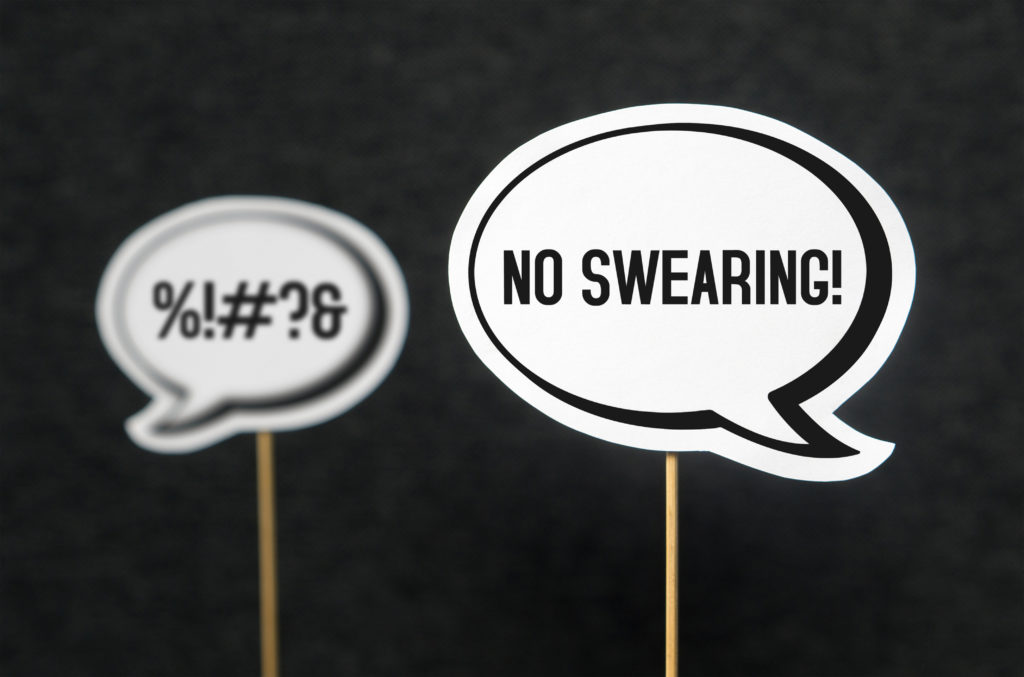Quick Hits
Daily brief research updates from the cognitive sciences

Swearing is frowned upon in many circumstances but is also used by many people in casual situations and particularly by comedians. So why do we swear if it is taboo?
A team of researchers at Keel University in the UK have just published a series of experiments in which they tried to elucidate the psychological mechanisms of swearing. It should be noted that these effects are in line with previous research. First off, they found that swearing increases physical strength – in this case it was how long participants could perform a chair push up (holding yourself for as long as possible on the arms of a chair). Other research has found that swearing increases pain tolerance which may be related.
Another experiment they conducted was in risky behaviour – in this case this was pumping up a balloon and seeing how far participants would pump with the obvious risk that it would explode. Swearing increases risk by 8%. They also noted that swearing increased self-confidence but also it had a humorous effect (also in line with previous research).
The psychological mechanisms they identify are all related to lowering self-control and “letting go”. So, swearing seems to do many things that are actually beneficial to us – no wonder we swear so much.

Andy Habermacher
Andy is author of leading brains Review, Neuroleadership, and multiple other books. He has been intensively involved in writing and research into neuroleadership and is considered one of Europe’s leading experts. He is also a well-known public speaker speaking on the brain and human behaviour.
Andy is also a masters athlete (middle distance running) and competes regularly at international competitions (and holds a few national records in his age category).
Reference
Stephens R, Dowber H, Barrie A, Almeida S, Atkins K.
Effect of swearing on strength: Disinhibition as a potential mediator.
Quarterly Journal of Experimental Psychology, March 2022.
doi:10.1177/17470218221082657
More Quick Hits
Unique Social Genes in Human Beings
Quick HitsDaily brief research updates from the cognitive sciences ne differentiating factor with human beings is our pro-sociality. This means we are a social species, and this sociality is seen in our ability to empathise, be socially tolerant,...
Want to Live Longer? Be Optimistic!
Quick HitsDaily brief research updates from the cognitive sciences e probably all know some people who are particularly pessimistic - always putting a negative side to things and expecting the worst outcomes. We probably also know some people who...
How Having Had COVID-19 Negatively Impacts Performance at Work
Quick HitsDaily brief research updates from the cognitive sciences ’m sure we’re all aware of the various negative aspects of having contracted COVID-19 such as long COVID but also the brain fog that seems to have been a feature that many people...
Narcissistic Leaders Block Knowledge Flow and Cooperation
Quick HitsDaily brief research updates from the cognitive sciences arcissism is considered one of the three dark-triad traits and something that has been reported as being common in senior leaders. The important question is can and does this hinder...
The Science of Exposing Liars
Quick HitsDaily brief research updates from the cognitive sciences he one place that we can consistently catch people lying is in job interviews. And the question has long been how do you catch out these liars? The answer is you need to outsmart...
High Traffic Noise at School, Slower Cognitive Development
Quick HitsDaily brief research updates from the cognitive sciences ho would have thought that traffic noise could impact cognitive development of kids? Well according to this recent piece of research it can. Are you sure? Well, these researchers...






